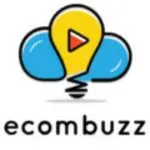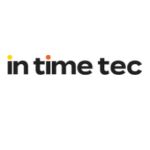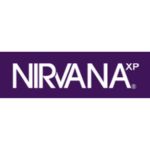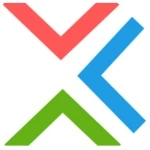
Top Web Development Companies for Fintech
Fintech companies need web development partners who understand the complexities of finance and technology. The best web development companies for fintech specialize in building secure, scalable, and compliant platforms—ranging from online banking portals and digital wallets to trading platforms and lending solutions. These firms focus on creating user-friendly interfaces, integrating APIs, ensuring data protection, and maintaining regulatory compliance. Whether you’re a startup or an established financial institution, the right development partner can help you deliver seamless digital experiences that build trust and drive engagement. Choosing an expert fintech web developer is crucial for long-term growth and customer satisfaction
List of the Best Frontend Development Agencies | Top Web Development Companies for Fintech in the World

-
Employees: 101-250
-
Min. Project amount: Undisclosed
-
Country: NJ, United States

Ecom Buzz
-
Employees: 0 to 10
-
Min. Project amount: $1,000+
-
Country: Kolkata, India

In Time Tec South Korea
-
Employees: 1,000 - 9,999
-
Min. Project amount: $5,000+
-
Country: Seoul, South Korea

NirvanaXp Inc.
-
Employees: 51-100
-
Min. Project amount: $25000
-
Country: Henderson, NV

WebDesk Solution
-
Employees: 1 - 50
-
Min. Project amount: $1,000 - $10,000
-
Country: NY, USA

Bluell
-
Employees: 11 to 50
-
Min. Project amount: $5,000+
-
Country: CHEYENNE, WY

Designers X
-
Employees: 11 to 50
-
Min. Project amount: $10,000+
-
Country: Florida, United States

A3Logics Inc.
-
Employees: 251 to 500
-
Min. Project amount: $1,000+
-
Country: California, USA
DevsNet
-
Employees: 10 to 49
-
Min. Project amount: Undisloced
-
Country: Dhaka, Bangladesh
Flatworld Solutions
-
Employees: 1000+
-
Min. Project amount: $1,000+
-
Country: Bengaluru, India
1.What do fintech web development companies do?
Fintech web development companies design and build digital platforms for financial services. This includes creating secure websites, web apps, online banking systems, investment portals, and payment gateways tailored to meet industry regulations and user expectations.
Fintech web development companies specialize in designing and building digital platforms that serve financial services. These companies combine technical expertise, industry knowledge, and a focus on security and user experience to create platforms that streamline financial transactions and improve user engagement.
1.1 Design and Build Secure Websites and Web Applications
Fintech development companies focus on creating secure, user-friendly websites and web applications that handle sensitive financial data. These platforms include features such as secure logins, encrypted data storage, and seamless user interfaces to ensure both ease of use and security.
Websites: Customer-facing portals, informational pages, and services like online loan applications.
Web Apps: Interactive platforms that allow users to manage their finances, track investments, or make payments.
1.2 Development of Online Banking Systems
A major service of fintech web developers is building online banking systems. These systems allow users to perform a wide range of banking activities, such as transferring funds, checking balances, and paying bills.
Core banking solutions: Systems that integrate with backend operations to provide a seamless banking experience.
Mobile banking apps: Allow customers to perform banking operations securely from their smartphones.
1.3 Creation of Investment Portals
Fintech development companies build investment portals where users can manage their portfolios, view market trends, and make investment decisions. These platforms typically include advanced data analytics, real-time tracking, and intuitive dashboards to help users navigate complex financial information.
Stock trading platforms: For real-time buying, selling, and monitoring of stocks and securities.
Cryptocurrency exchanges: Platforms for trading digital currencies with secure wallets and transaction systems.
1.4 Development of Payment Gateways
Another key service is the creation of payment gateways that facilitate secure online transactions. These gateways process payments for a wide range of financial services, from eCommerce transactions to international money transfers.
Payment processing systems: Ensures secure and efficient transfer of funds during online transactions.
Mobile payment solutions: Enables easy payments through mobile phones, including NFC-based payments or QR codes.
1.5 Compliance and Regulatory Requirements
Fintech companies must ensure that the platforms they develop comply with industry regulations and security standards like PCI-DSS, GDPR, and other regional laws. Compliance ensures that the platform remains secure and legal while protecting customer data.
Data encryption and security: Protecting user data using high-level encryption methods.
Regulatory adherence: Meeting the requirements set forth by financial regulatory bodies to ensure legal compliance.
1.6 User-Centric Design
Fintech developers focus heavily on user experience (UX), making sure the interfaces are intuitive, easy to navigate, and responsive. This helps increase user satisfaction and engagement, ensuring users can easily interact with financial services, no matter their technical skill level.
UI/UX design: Creating visually appealing and user-friendly interfaces.
Responsive design: Ensuring the platform works smoothly across different devices, including smartphones, tablets, and desktops.
Conclusion
Fintech web development companies play a crucial role in building secure, efficient, and user-friendly digital platforms for the financial services industry. From developing online banking systems and payment gateways to investment portals, these companies ensure that platforms are not only functional but also comply with regulatory standards while delivering a seamless user experience
2.What features should a fintech website or app have?
Key features include secure login, user dashboards, transaction history, payment processing, real-time data, customer support tools, and compliance mechanisms. Custom features may vary based on the product (e.g., lending, insurance, or wealth management).
A successful fintech platform must deliver a seamless, secure, and user-friendly experience. The following are essential features that help fintech websites and apps meet customer expectations, comply with regulations, and stand out in a competitive market.
2.1 Secure User Authentication
Security is a top priority in fintech. The platform should offer multi-factor authentication (MFA), biometric logins, and encrypted credentials to protect user accounts and sensitive financial data.
Examples: OTPs, fingerprint/face recognition, two-step verification.
2.2 Personalized User Dashboards
A user-friendly dashboard is the heart of the fintech experience. It provides an overview of account balances, recent transactions, spending insights, and quick access to tools and features.
Customizable interface to fit user preferences.
Visual data elements like graphs, charts, and spending categories.
2.3 Transaction History and Tracking
Users must be able to view detailed records of their financial activities, including deposits, withdrawals, transfers, and payments.
Search and filter options.
Real-time updates and downloadable statements.
2.4 Payment Processing and Fund Transfers
Secure, fast, and flexible payment options are crucial. The platform should support:
Bank transfers, UPI, credit/debit cards, eWallets.
Scheduled and recurring payments.
Peer-to-peer (P2P) transfers.
2.5 Real-Time Data and Notifications
Users expect real-time updates for transactions, stock market changes, loan approvals, and more.
Push notifications and email alerts.
Live data feeds for investment or crypto platforms.
2.6 Customer Support Integration
Support features help users resolve issues quickly and improve trust.
Live chat, in-app messaging, FAQs.
AI-powered chatbots for 24/7 assistance.
2.7 Regulatory Compliance and Data Protection
Fintech platforms must adhere to legal and industry standards such as PCI-DSS, GDPR, and KYC/AML regulations.
Automated KYC/AML verification.
Secure data storage and audit trails.
2.8 Optional Features Based on Use Case
Depending on the fintech domain, additional features may include:
For Lending Platforms: Credit score check, loan calculators, EMI schedules.
For Investment Apps: Portfolio management, market analytics, risk assessment.
For Insurance Tech: Policy comparisons, claim tracking, premium reminders.
Conclusion
A fintech website or app should be secure, intuitive, and packed with features that make financial services easier to access and understand. Custom features tailored to specific financial services further enhance value and user satisfaction
3.How do I choose the right fintech development company?
Look for a company with fintech experience, a solid portfolio, knowledge of compliance standards, strong technical skills, and client reviews. Their development process should prioritize security, scalability, and UX/UI design.
Selecting the right fintech development partner is a critical step in building a secure, scalable, and successful financial product. Here are the key factors to consider when making your decision:
3.1 Check Industry Experience
Choose a company that has proven experience in the fintech sector. This ensures they understand the unique challenges, compliance requirements, and customer expectations in financial services.
Look for fintech-specific projects in their portfolio.
Ask about past work with banks, lending platforms, payment systems, or insurance tech.
3.2 Evaluate Their Portfolio and Case Studies
A strong portfolio reflects the company’s design capabilities, technical strengths, and industry relevance.
Review case studies that highlight challenges solved, technologies used, and outcomes achieved.
Prioritize companies that have built platforms similar to what you envision.
3.3 Verify Regulatory Knowledge and Compliance Expertise
Fintech is a highly regulated industry. The right partner should be familiar with standards like:
PCI-DSS, GDPR, KYC/AML, SOC 2, and other relevant frameworks.
They should build solutions with data protection and compliance automation in mind.
3.4 Assess Technical Capabilities
The development team should have expertise in modern tech stacks relevant to fintech, such as:
Backend: Node.js, Python, Ruby on Rails
Frontend: React, Angular, Vue.js
Databases: PostgreSQL, MongoDB
Security tools, APIs, cloud platforms (AWS, Azure, GCP)
Also check for capabilities in DevOps, CI/CD, QA testing, and cloud infrastructure.
3.5 Evaluate Design and User Experience Skills
Fintech apps must be user-friendly, especially if they cater to a wide range of non-technical users.
Review UX/UI samples for clean layout, intuitive flows, and responsive design.
Ask about their process for wireframing, prototyping, and user testing.
3.6 Read Client Reviews and Testimonials
Client feedback is a reliable indicator of the company’s professionalism, communication, and delivery quality.
Explore reviews on Clutch, GoodFirms, or Google.
Ask for references or contact past clients for insights.
3.7 Prioritize Security and Scalability
Security is non-negotiable in fintech. The company must implement:
End-to-end encryption, secure APIs, authentication protocols
Scalable architecture to handle growth and user traffic efficiently
3.8 Understand Their Development Process
A transparent, collaborative, and well-documented development process ensures timely delivery and alignment with your goals.
Inquire about their project management tools and methodologies (Agile, Scrum, etc.).
Ensure they offer post-launch support and maintenance.
Conclusion
Choosing the right fintech development company involves more than just comparing price quotes. Focus on experience, security, compliance, and user-centric design. A strong partner will not only build your product but also help you scale it securely and effectively
4.How much does it cost to build a fintech platform?
Costs vary depending on complexity, features, tech stack, and project size. A simple MVP may start around $20,000–$50,000, while more complex platforms can exceed $100,000. Custom quotes are usually provided after consultation.
The cost of developing a fintech platform can vary widely based on scope, functionality, compliance needs, and team expertise. Below is a breakdown to help you understand what influences the total budget.
4.1 Cost Breakdown by Project Complexity
Basic MVP (Minimum Viable Product)
Cost Estimate: $20,000 – $50,000
Includes: Core features like login, user dashboard, basic transactions, and minimal UI/UX
Ideal for startups looking to validate their product idea quickly.
Mid-Range Platform
Cost Estimate: $50,000 – $100,000
Includes: Payment integrations, detailed analytics, improved UI/UX, security layers, admin panel
Suitable for early-stage financial services or investment platforms.
Enterprise-Level or Full-Scale Fintech Product
Cost Estimate: $100,000+
Includes: Advanced features (KYC/AML, compliance automation, multi-role access, real-time updates), scalable infrastructure, third-party integrations, mobile/web versions
Ideal for banks, insurance providers, or companies scaling to thousands of users.
4.2 Factors That Affect the Cost
1. Feature Set
More features like AI-driven insights, integrations with financial APIs, or multi-currency support increase complexity and cost.
2. Technology Stack
Some stacks require more specialized developers or licensing costs (e.g., blockchain, advanced data security systems).
3. Compliance Requirements
Implementing compliance mechanisms (like PCI-DSS, SOC 2, GDPR) requires legal and technical diligence, which increases both time and cost.
4. Design and UX Requirements
Custom UI/UX design, animation, and user testing phases also add to the budget.
5. Team Location & Size
Hiring a team in North America or Western Europe will cost more than working with experienced developers in Eastern Europe, India, or Southeast Asia.
4.3 Additional Costs to Consider
Ongoing Maintenance & Updates: 15–25% of development cost annually
Third-Party Services: API subscriptions, cloud hosting (AWS/GCP), KYC vendors
Security Audits: Often necessary for fintech compliance and may incur extra fees
Conclusion
A fintech platform’s cost can range from tens of thousands to several hundred thousand dollars depending on your vision. Most development companies offer custom quotes after a consultation, considering your feature requirements, timeline, and target market



